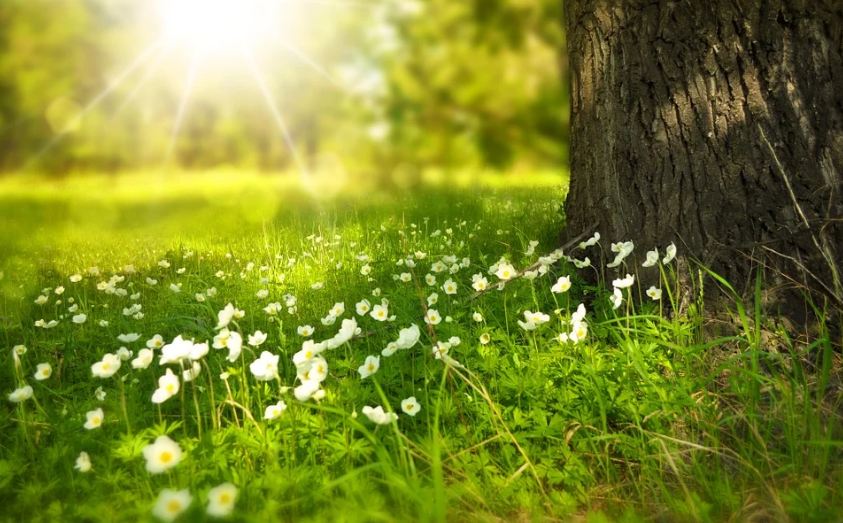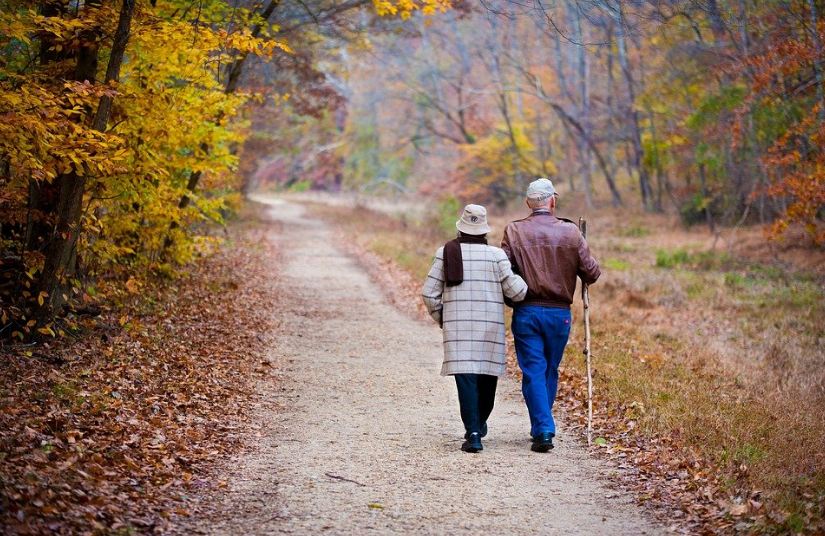Many individuals work indoors in front of computers and under fluorescent lights during the day, then come home to take in the glow of television screens at night.
However, research reveals that it’s also crucial to make time to be outside, as it’s beneficial (if not essential) to human health. Nature is magical, and some studies show that it has powerful healing properties, such as boosting the immune system, improving mood, and increasing anti-cancer proteins. Psychologists and health experts are discovering more and more scientifically supported reasons to get outside and enjoy nature.
For the mind and body, being outside in nature may be helpful and healing. Nature has a calming impact, whether you’re birdwatching in the woods, strolling along the beach, or sitting at a local park. In addition, combining nature with regular exercise can aid in the treatment of anxiety and sadness.
Aside from the ones already mentioned, there are many other benefits of getting close and personal with Mother Nature.
Aids You In Getting Exercise
When you walk outside, especially if you’re a kid, you’re more inclined to exercise. You don’t need a car, a gym membership, or any additional equipment; simply walk out the door. However, if you’re looking to join a gym, it’s better to know what to look for.
With a pull-up bar, a simple incline, or a set of steps, you may perform a variety of gym workouts at your local park. The wind’s force and uneven ground can aid you in mixing up your training and burning more calories.
Reduces Anxiety
Even a little plant or photographs of nature in the room will help you feel less angry, worried, and agitated. However, it is preferable that you leave that place and go outside.
Exercise can also help with anxiety. But, as compared to doing out at a gym, it’s even better if you do it outside. Serotonin levels are maintained by exposure to sunlight. This will aid you to feel more energized while also keeping your mood peaceful, happy, and focused.
Helps You Get Vitamin D
It’s necessary for your blood cells, bones, and immune system to function correctly. It also helps in the absorption of certain minerals like phosphorus and calcium by the body. To make it, your body requires sunlight, but only a small amount.
Two or three times per week of 5 to 15 minutes of sun exposure should suffice in the summer. You may require a little extra in the winter.
Helps You Sleep Better
The natural outdoor also help in the foundation of your sleep cycle. Your body’s internal clock needs adequate light for cells in your eyes to work properly. In particular, early morning sunshine appears to help people fall asleep.
As you age, this may become even more significant. Your eyes become less able to absorb light, and you’re more prone to experience sleep issues.
It’s Social
When you go outside your house, you notice more than just Mother Nature. You’re also more connected to the places and people in your neighborhood. The importance of a sense of community and human contact to your mental health cannot be overstated.
Plan a course that takes you to a friend’s house and then to the park for some exercise. Finish at a nearby coffee shop. It’s possible that you’ll be shocked at how amazing it makes you feel.
Enhances Your Focus
It makes sense, even if it’s just for the exercise you receive from doing anything outside. However, studies demonstrate that it’s not just the activity that makes a difference; it’s also the “greenness” of the outside space. According to one study, children with ADHD could concentrate better on a task after a stroll in the park than after a stroll through an urban environment.
Helps You Feel Better About Yourself
Self-esteem can be improved with as little as five minutes of outdoor activities. This is especially true if you live near a body of water or a green area. And it isn’t high-intensity exercise that is the most effective. A more leisurely activity, such as a bike ride, a walk, or garden work, appears to be even more effective.
Enhances Creativity
Do you have writer’s block? Do you have a difficult challenge that you can’t seem to solve? Spend time in the fresh air.
According to studies, spending some time in nature can help you solve problems more creatively. This is partly because the outside world attracts your attention more calmly, allowing you to refocus your attention. The greater the benefit, the more time you spend, but even “going out for some fresh air” might nudge your brain into a fresh thought pattern.
Improves Your Immunity
More vitamin D production as a result of increased sunlight is already beneficial to your immune system. However, the outdoors appears to be beneficial in other ways. Many plants release molecules into the air, including organic compounds known as phytoncides, that appear to improve immunological function.
Sunlight also appears to energize T cells, immune system cells that aid in the battle against infection.
Provides Free Aromatherapy
You should, according to research, take a moment to smell the flowers. Natural fragrances like freshly cut grass, roses, and pine can help you feel calmer and more relaxed.
Assists You in Maintaining a Healthy Weight
You will sleep better and be more active if you spend time outside. Both of these items aid in the burning of calories. However, getting outside, particularly in the morning, may aid with weight loss.
This is partly because light helps to regulate your energy consumption and sleep. However, there could be other elements at play. Between 8 a.m. and noon, you’ll need 20 to 30 minutes to see a difference, though the sooner you get it, the better.
Natural Sunlight Helps Mitigate Pain
According to one study, surgery patients exposed to high-intensity sunshine experienced less stress and somewhat less pain and thus needed less pain medicine.
Aids With Seasonal Affective Disorder
Seasonal Affective Disorder, or SAD, is a recurrent disorder characterized by symptoms of tiredness, anxiety, and sadness that can be triggered by reduced light levels and shorter days in the winter. Doctors suggest that spending time outside, especially if the weather is chilly or overcast, can help alleviate SAD symptoms.
Reduces Inflammation
When inflammation goes into overdrive, it’s linked to autoimmune illnesses, inflammatory bowel disease, depression, and cancer, to name a few. Time spent in nature could be one method to keep it under control.
According to one study, those who spent significant time in the forest had reduced levels of inflammation than students who spent their time in the city. In another study, elderly patients who went on a week-long journey into the woods exhibited less inflammation. There was some evidence that the foray into the woods had a good impact on the hypertension levels of those patients as well.
Makes Us Better People
Exposure to nature, according to psychologists, helps us forget about society demands and recall and value more essential things like sharing, connections, and community.




